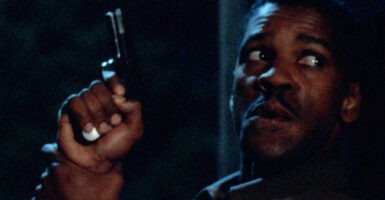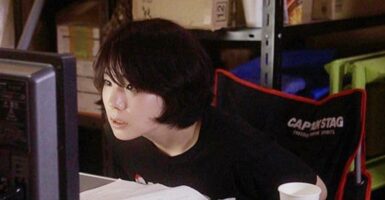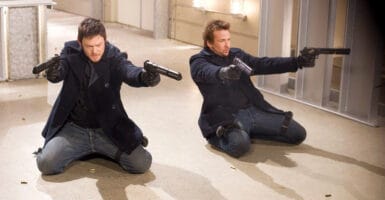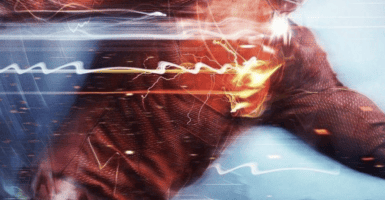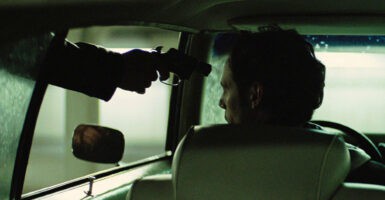James Gandolfini Saved His Sopranos Co-Star From An Unexpected Nude Scene
The late James Gandolfini protected one of his The Sopranos costars from having to bare it all in front of the camera
This article is more than 2 years old
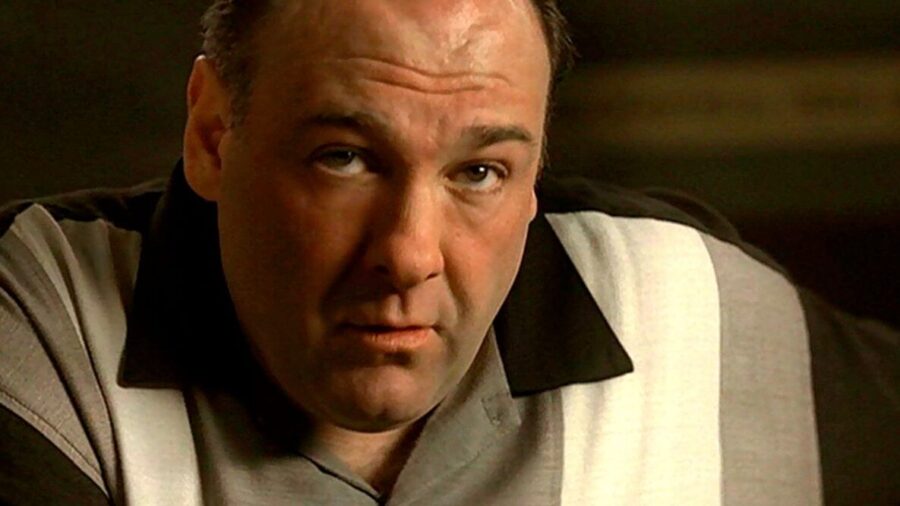
Tony Soprano would break bones to protect his family and as it turns out, the late actor James Gandolfini was just as protective of his work family. Season four of HBO’s The Sopranos featured a Newark Assemblyman in episode seven (“Watching Too Much Television”) walloped to tears by a drunk, irate Tony (Gandolfini); the politician in question, a Ronald Zellman, had been fooling around with Tony’s former mistress Irina Peltsin, incurring the Soprano family patriarch’s wrath and sense of familial probity. Up until that point, Zellman was an ally in the mob’s schemes. Tony (Gandolfini) barged into Zellman’s home uninvited, where the horrified Assemblyman received successive lashings. The scene saw Zellman, played by veteran television actor Peter Riegert, endure Tony’s beating in a pair of long boxer-shorts. Apparently, the original version in the script wasn’t nearly as sanitized or strangely PG.
According to co-stars Michael Imperioli and Steve Schirripa’s new book Woke Up This Morning: The Definitive Oral History of The Sopranos, the initial draft of the scene had James Gandolfini stripping off Riegert’s underwear and smacking his naked bottom with a leather belt. Riegert recalls reading the description with gnawing unease, not having been briefed ahead of time he would be filming nude. Gandolfini had reportedly noticed the abject horror on Riegert’s face during a table read and immediately went over to check on him once the session was finished. Upon hearing his colleague’s various apprehensions, Gandolfini offered to speak with series creator David Chase together and promised to have his back. Riegert could have lost his job or self-worth that day, but Gandolfini’s timely and willing intervention saved him.
“The thing was, at that table read, I didn’t realize that Jim recognized, on my face, that there was an actor in trouble. And he made it so it was my choice,” he writes. “I didn’t know whether I was going to get fired or not, but Jimmy said to me, ‘Whatever you decide to do, I promise you I will have your back.’” In the world of capos and Italian mobsters, honor is key — and James Gandolfini certainly proved his chops looking out for his fellow actor. The controversial Sopranos scene was eventually revised (though reluctantly, on Chase’s part) to allow Peter Riegert to keep his boxers on as Ronald Zellman. The character was still assaulted with a belt (made of Styrofoam, obviously), but instead of being reduced to a demeaning nude scene a la Quentin Tarantino, Riegert used the opportunity to cower before Tony Soprano, thereby humiliating the Assemblyman in a far more personal way than the first.
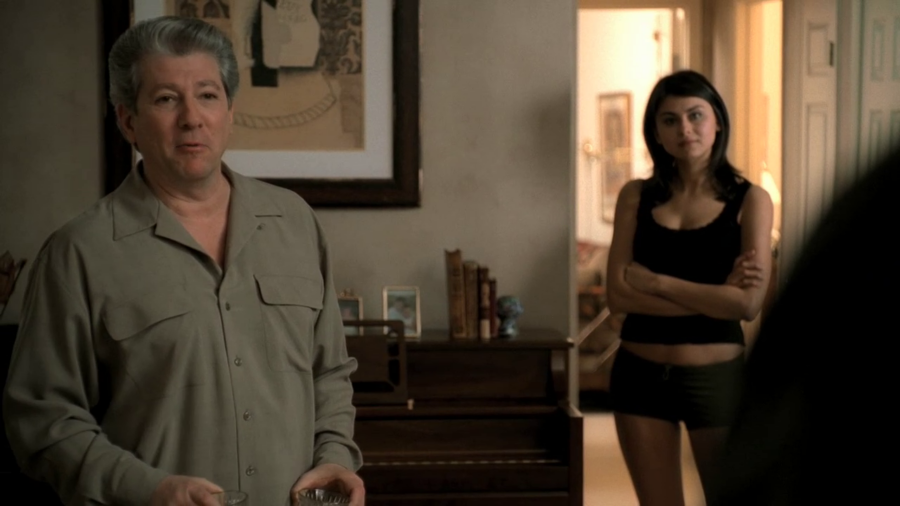
The late James Gandolfini of The Sopranos was a humble, practical guy who disliked interviews and gave back to the community whenever he could. A fitting antithesis to one of the most volatile television crime lords to ever grace Hollywood. On his part, Peter Riegert remembers the Westwood native as a total “mensch” (or someone with integrity and honor) for standing up to his own colleagues whenever the situation necessitated. There was no such thing as hierarchy or power for Gandolfini, only right and wrong — and if nobody else was willing to fight for it, then he wouldn’t hesitate to tear down walls if he had to. Gandolfini was the G.O.A.T. of 2000s TV, only earning such a distinction for both playing Tony Soprano to perfection and treating his coworkers with dignity. Gandolfini passed away from a heart attack in 2013.
David Chase’s The Sopranos ran for six seasons and 86 episodes from 1999 to 2007. It won numerous awards during its time, including 21 Primetime Emmys, five Golden Globes, and several Peabodys. A prequel film, The Many Saints of Newark, stars James Gandolfini’s now-22-year-old son Michael as young Tony Soprano at the height of the 1967 Newark riots. Written by David Chase and Lawrence Konner, the movie released in October 1.

